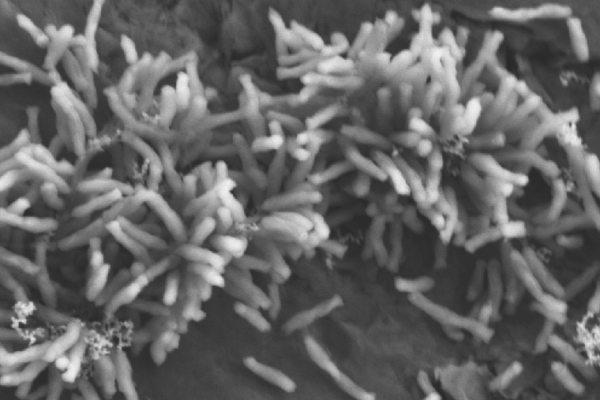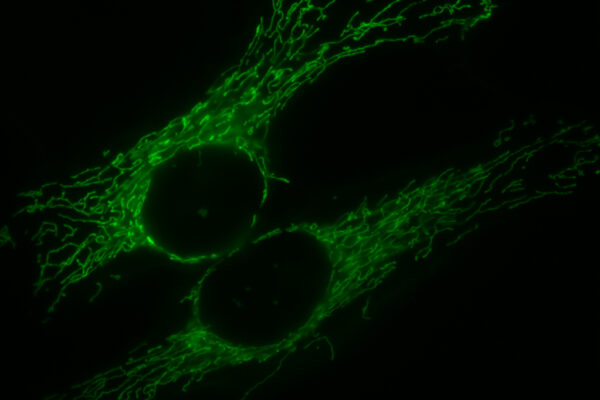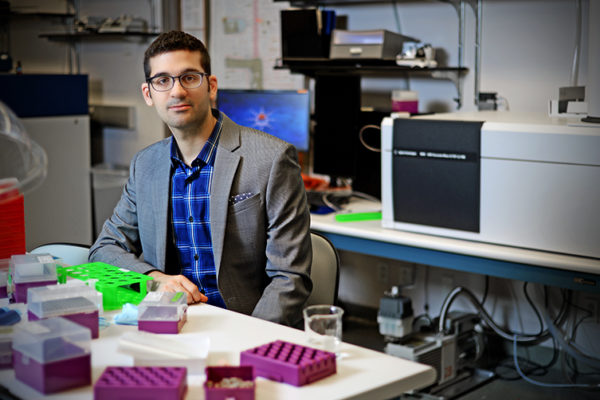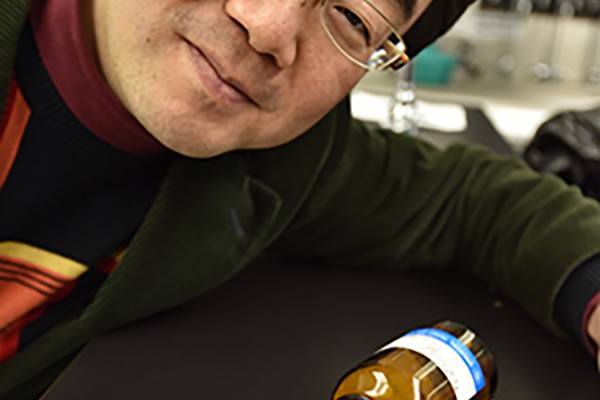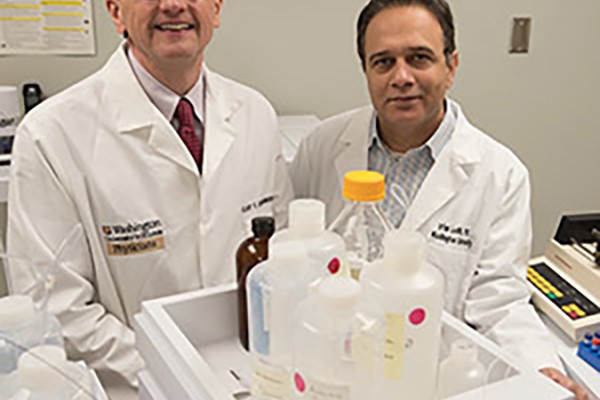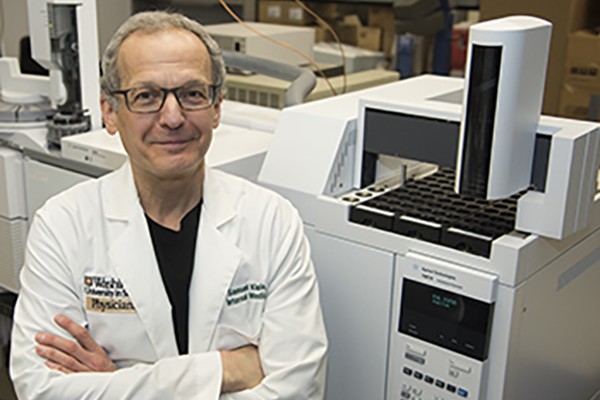How electricity-eating microbes use electrons to fix carbon dioxide
Led by Arpita Bose, assistant professor of biology in Arts & Sciences, a Washington University team showed how an electricity-eating microbe takes up electrons from conductive substances like metal oxides or rust to reduce carbon dioxide. The work is described in the journal Nature Communications.
Better together: Mitochondrial fusion supports cell division
New research from Gary Patti’s laboratory in Arts & Sciences shows that when cells divide rapidly, their mitochondria are fused together. In this configuration, the cell is able to more efficiently use oxygen for energy. This work illuminates the inner workings of dividing cells and shows how mitochondria combine to help cells to multiply in unexpected ways.
Metabolomics for the masses
Gary Patti, the Michael and Tana Powell Professor of Chemistry in Arts & Sciences at Washington University in St. Louis, has been awarded $4.8 million in two separate National Institutes of Health (NIH) grants focused on improving the accessibility of metabolomics — the study of the biochemical reactions that underlie metabolism.
Gluttonous cancer cells
A simple experiment, originally undertaken to test a new methodology, unexpectedly disproved the prevailing notion of cancer metabolism.
Challenging an old idea
For more than 80 years, scientists have thought that cancer cells fuel their explosive growth by soaking up glucose from the blood, using its energy and atoms to crank out duplicate sets of cellular components. But is this really true? Work in a metabolomics laboratory at Washington University in St. Louis suggests not.
Fat signals control energy levels in the brain
An enzyme secreted by the body’s fat tissue controls energy levels in the brain, according to new research led by Shin-ichiro Imai, MD, PhD, of the School of Medicine. The findings, in mice, underscore a role for the body’s fat tissue in controlling the brain’s response to food scarcity, and suggest there is an optimal amount of body fat for maximizing health and longevity.
Targeting fatty acids may be treatment strategy for arthritis, leukemia
Enzymes linked to diabetes and obesity appear to play key roles in arthritis and leukemia, potentially opening up new avenues for treating these diverse diseases, according to researchers Clay Semenkovich, MD, (left) and Irfan Lodhi, PhD, at the School of Medicine.
Not all obese people develop metabolic problems linked to excess weight
New research demonstrates that obesity does not always go hand in hand with metabolic changes in the body that can lead to diabetes, heart disease and stroke. Washington University School of Medicine researchers found that a subset of obese people do not have common metabolic abnormalities associated with obesity, and they don’t develop them when they gain more weight.
Obituary: William H. Daughaday, former director of metabolism, 95
William H. Daughaday, MD, a leading diabetes researcher, world authority on growth hormone, and the former director of the metabolism division at Washington University School of Medicine in St. Louis, died after a long illness Friday, May 3, 2013, in Milwaukee. He was 95.
Resveratrol falls short in health benefits
Resveratrol, an ingredient in red wine thought to improve insulin sensitivity, reduce risk of heart disease and increase longevity, does not appear to have those benefits in healthy women, according to new research from Washington University School of Medicine in St. Louis.
View More Stories
